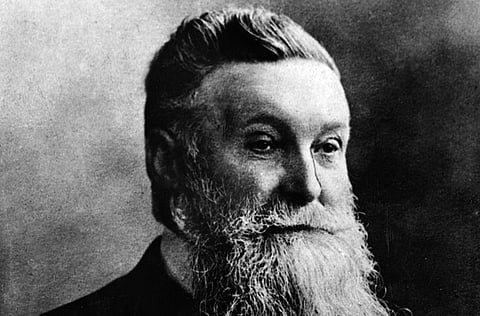John Boyd Dunlop's air of change
John Boyd Dunlop wanted to make his son's tricycle ride smoother. He did so by adding pneumatic tyres to it and in the process, helped the world move about in comfort

How comfortable is your car? Of course, with revolutionary magnetorheological shock absorbers and the like, it should be. But the truth is, air suspension or hydraulic, coil spring or leaf, your car's ride is only as good as the tyres it's wearing. And for those, you have a bewhiskered old Scottish veterinary surgeon to thank. If John Boyd Dunlop's son had not complained to him about the headaches he used to get from his tricycle's bumpy ride over the cobbled streets of Belfast where they lived, the automotive world would have had a rougher ride, literally.
Determined to find a solution to his boy's nagging problem, Dunlop came up with an idea: to fit the tricycle with inflated tubes of rubber. Seeing that it worked, he patented this idea in 1888, calling it ‘pneumatic' tyres. However, Dunlop didn't invent pneumatic tyres, as another Scot, Robert William Thomson, had patented it way back in 1846. But Thomson's tyres remained unknown to the world — he didn't have any other type of vehicle to test his invention other than horse-drawn carriages. So, although it was a chance invention, Dunlop's pneumatic tyres came out at the right time in history, almost at the same time when the first automobile was produced by Karl Benz in Germany. It really caught on after Willie Hume, a famous cyclist, bought a cycle fitted with Dunlop's tyres and rode it to victory in a local bicycle race. It caught the attention of businessman Harvey du Cros, who, together with Dunlop, set up a small company in Dublin to manufacture these tyres. This small-scale firm later went on to become the multinational Dunlop Rubber Company.
Although he invented it, Dunlop didn't make much monetary gain from the company, as he sold his patents to Du Cros in 1896 and retired to Dublin. But his pneumatic tyres had by then sparked a revolution that would change the way the world moved forever.


